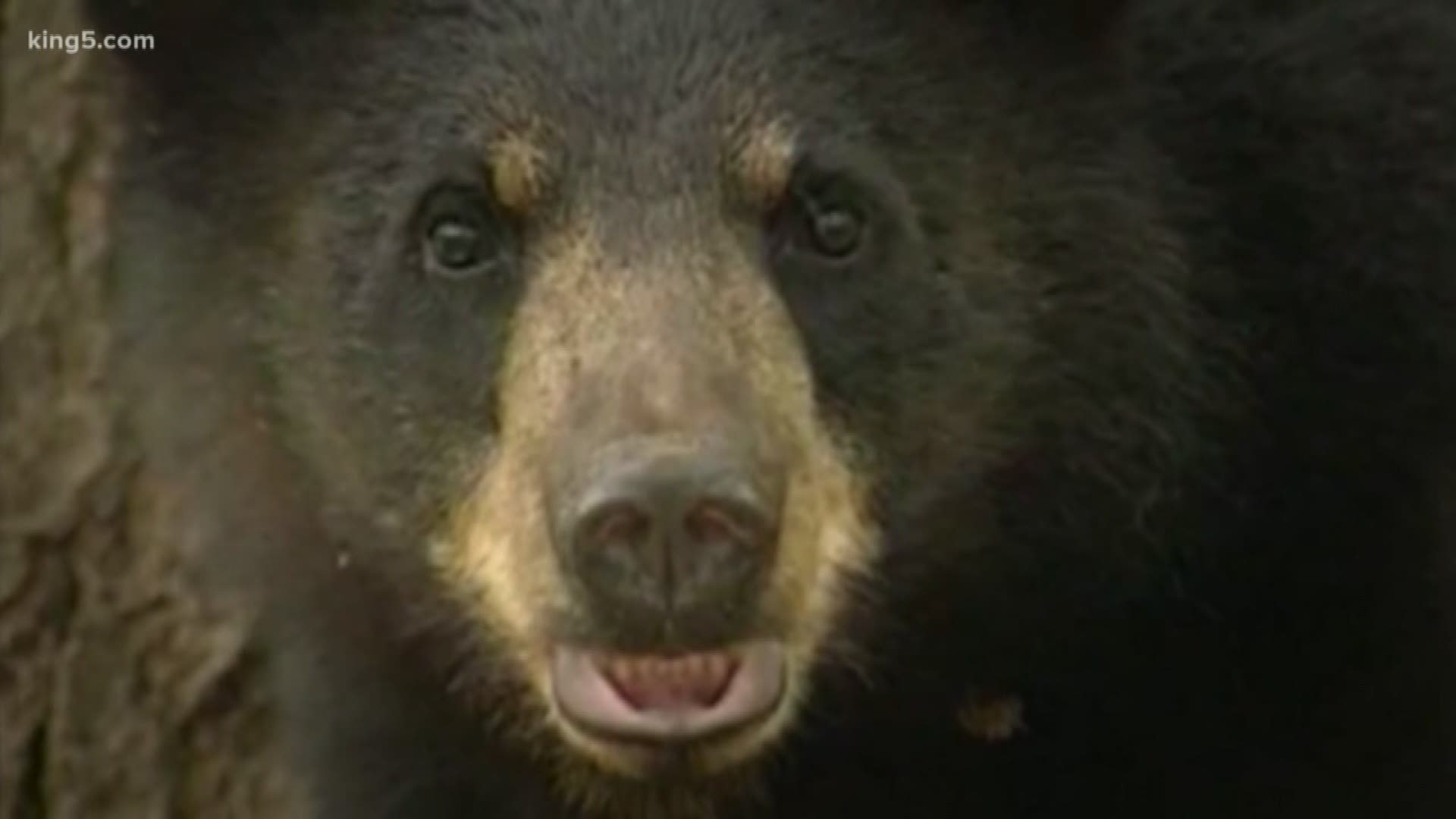SEATTLE — Bears are hungry after hibernation and trees offer a quick and sugary snack. By peeling tree bark to get to the sweet layer underneath, bears damage trees and timber farmers blame them for expensive damage every year.
It's why bear hunts happen every spring on commercial timber farms to keep bears from damaging trees, but KING 5 found the hunters use dogs, bait, and traps, which are methods banned by Washington voters two decades ago.
The Washington Department of Fish and Wildlife permits the hunts through the Bear Timber Depredation Management Program. Critics believe it violates state law.
"It is also interesting because really only 25 percent of the animals being killed based on these permits in this program actually have any bark in their system. So, we are not necessarily killing bears that are actually causing the problem, and there is no evidence that killing those bears is helping the problem in any manner," said Sophia Wressler.
Wressler is an attorney with the Center for Biological Diversity, the group suing the state after an investigation KING 5 aired two years ago. The lawsuit claims the state is allowing hunting practices that violate Initiative 655.
Hunting bears with dogs is perfectly legal under an exception built into I-655. The provision in the law allows hound hunting to continue for the protection of property, but critics and experts say the state and timber farmers are abusing the legal loophole against the letter and spirit of the law.
Hunters can still use those practices to target a specific bear known to be causing problems. But during a two-year investigation KING 5 found that instead of targeting bears that peel and damage trees, hunters kill any bear that's around, all approved by the state.
The official codification of I-655 – RCW 77.15.245 – includes the following allowance:
“Nothing in this subsection shall be construed to prohibit the killing of black bear, cougar, bobcat, or lynx with the aid of a dog or dogs by employees or agents of county, state, or federal agencies while acting in their official capacities for the purpose of protecting livestock, domestic animals, private property, or the public safety. A dog or dogs may be used by the owner or tenant of the real property consistent with a permit issued and conditioned by the director.”
The controversy centers on an interpretation of what it means to protect private property. It’s pitting the Washington Department of Wildlife against its own staff and the backers of I-655.
Last year, a judge temporarily stopped the program while it waits for a full hearing. Except it's taken the state so long to produce proper documents, the bear hunting on timberland will likely be delayed another year.
"The Center for Biological Diversity is confident that regardless of what happens, there will not be a 2019 season for these bear permits going forward," said Wressler.
In a statement to KING 5, WDFW Wildlife Conflict Management and Prevention Lead Dan Brinson wrote:
"Since the injunction, we've continued our discussions with stakeholders, conservationists, timber companies, family forest owners, and others in an effort to move forward. We realize that with the current court timeline, it is unlikely that we will be able to provide landowners relief from timber damage this spring. We look forward to the clarity the court may provide, and will implement the Bear Timber Management Program based on those findings."
Attorneys suing the state want it to come into compliance with the law. They hope the legal delays will someday produce a new program that works for everyone.
"And hopefully a rulemaking by the department is going to further save bears and also protect the timber industry and will be a victory all around," said Wressler.

